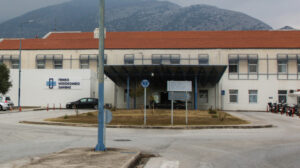U.S Senate Foreign Relations Committee Chairman Bob Menendez (D-N.J.), and Senator Marco Rubio (R-Fla.) are proposing to sell six F-35 fighter jets to Greece’s armed forces in light of deteriorating relations between Turkey and the US.
Unless US-Turkish relations rapidly improve and Senators Menendez and Rubio’s proposal is finally approved by US legislators, the sale of the six F-35s to Greece will be the first step in strengthening the Air Force with fifth-generation fighter jets.
Robert Menendez tabled a bill calling for, among other things, the approval of a request to sell F-35s, the most modern fighter jets on the planet, to Greece. The Democratic senator even demands that the “aircraft produced but never delivered to Ankara as a result of Turkey’s exclusion from the F-35 program due to the purchase of the Russian S-400 system” be delivered to Greece.
The six F-35 fighters remain in the Lockheed Martin hangars for years, after Washington cancelled their sale to Turkey as punishment for the latter’s deal with Russia to buy the S-400 missile system. So far, the US lawmakers have not taken the next step, which is to sell fighter jets built for the Turkish Air Force to a third country.
For at least three years, an invisible force seemed to be holding back the relevant procedures for the Greek Air Force’s attempt to acquire F-35 fighter jets. This inexplicable delay was finally broken a few months ago with the move by Greece to buy 18 French Rafale fighter jets, which are expected to multiply the capabilities of the Aegean guards of the Hellenic Air Force.
With the proposal of Robert Menendez, the issue of the acquisition of American fighters from Greece has resurfaced dynamically, despite the efforts of unknown factors to delay or even freeze the procedures.
However, the procurement of the fifth-generation jets by Greece is by no means locked and done, despite the seemingly cross-party consensus between Democrat Robert Menendez and Republican Marco Rubio, which could help formalise the proposal by passing the bill within the next six months.
No one can rule out a possible overturning of events, as Turkish President Tayyip Erdogan is bent on mending relations with the United States and create a channel of direct communication with US President Joe Biden. “Erdogan is unpredictable. If he sees that it is in his interest to re-establish relations with Washington, he can put the S-400s in a hangar to hide them and the next day claim the completion of the purchase of 100 F-35s from America”, warns a person with knowledge of US-Turkish relations.
Since 2018, seeing that Turkey is losing its privileged status in the F-35 program, Greece had made moves to gain access to the JSF project. Under the ministry of Panos Kammenos, the Air Force had requested from the American authorities information on the availability for sale of F-35s, as well as prices per unit of the fighter aircraft. Surprisingly, according to credible sources, Greece had received no response for months from Washington. It was as if an invisible hand was holding back the processes of exchanging even preliminary information that could signal the start of the F-35 acquisition effort.
The next attempt by the Ministry of National Defence and the General Directorate of Defense Armaments to inquire about the aircraft took place in November 2020 when Athens sent Washington an official letter of interest (Letter of Request) about the delivery schedule of the 18-24 F-35 aircraft that the Greek side asked to buy, but also the prices depending on the configuration.
“Due to internal fiscal regulations and other applicable rules within the EU Budget and framework for the deficit, it is crucial that the first F-35s be delivered in 2021,” the Greek request said. It is clear that the call for the delivery of the first American F-35s in 2021 indirectly referred to the six fighter jets built on behalf of Turkey. A few days later, Geoffrey Pyatt, the US ambassador to Athens, publicly stated that he was working on the future sale of F-35s in Greece, noting: “The road to the acquisition of F-35s is a multi-year process based on the success of the program and upgrade of the Greek F-16 Viper “. In essence, the head of US diplomacy in Athens linked the launch of the F-35 purchase program with the completion of the modernisation of the 84 F-16s, a program that is not expected to be completed before 2026.
A few months later, in March 2021, the US Ambassador referred once more to the possibility of the Greek Air Force acquiring the F-35s. “We are ready to sell F-35s whenever Greece is ready,” he said, reiterating again that the sale of F-35s depends on the modernisation of the F-16s that will prepare the Air Force for the next step. U.S. officials have cited Lockheed Martin, saying it would take about five years to develop the infrastructure needed to host the F-35s.
“I think it was not stuck,” said a source with excellent knowledge of the negotiations for the purchase of F-35 in our question about the delay in the implementation of the program. What none of the American officials are willing to publicly admit publicly is that the sale of F-35s to Greece depends on US-Turkish relations.
In the delicate balance between Washington and Ankara, US officials would not want to risk further deterioration in relations due to a possible decision to sell F-35s to Greece, especially if the first fighters to be directed to Athens are the six that were built for Ankara.
author Makis Pollatos
Ask me anything
Explore related questions





